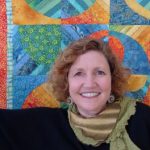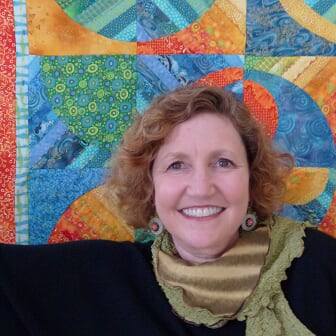Steffi Aronson Karp

As the name suggests, Limmud—Hebrew for study—is a conference dedicated to Jewish learning. Even presenters attend as learners. Many join the volunteer teams that create and put on this annual extravaganza of everything Jewish. Learning at Limmud increases wisdom (chochma). LimmudBoston offerings include Jewish content through presentations, panels and performances centered on text study, Israel, Jewish life experience, education, parenting, aging, life cycle, spirituality, and almost anything else which has a Jewish component. LimmudBoston, one of 84 Limmuds worldwide, draws from New England and beyond.
Teams of volunteers organize to create each Limmud (kehillah). These groups of volunteers determine the program, plan site set-up, produce a program book, organize kosher food, and carry out a myriad of conference day tasks. Volunticipation (volunteer + participation) brings a sense of ownership for their part of the planning. The majority of our planners return year after year, with a sense of sacred purpose (kedusha) because LimmudBoston represents an opportunity to own their part of the conference.
As a volunteer-driven event, we provide multiple opportunities for tzedaka, both through financial giving, and ways to donate time and talent. We are well aligned with both the giving and the receiving ends of tzedaka. Local and international tzedaka projects engage at LimmudBoston in order to take advantage of a day-long opportunity to meet and reach new potential volunteers.
In creating eight conferences over the past decade, we discovered that our volunteer-centric community often includes people facing life cycle transitions: new empty nesters, or those who are in-between relationships; newly retired adults; and those between employment opportunities. We have found a loyal posse of regulars who seek an organization like ours which can benefit from their time and talent, and not solely treasure.
Although funders tend to focus on the number of millennials we attract and serve, that is not always our core constituency. The greater Boston area has a lot of millennial-specific programming. While plenty of young professionals attend LimmudBoston, especially when their employers pay their way as religious school educators, they are not (yet) actively engaged in LimmudBoston planning and execution.
However, we do engage an active cohort of adults who are thrilled to volunteer as program planners, or day-of conference regulars who return year after year. For better or worse, some of these 40-plus adults feel that they are invisible to the Jewish community. Somehow federations and other funders convey the idea that anyone older than millennials should be donors. That is not always possible. Over the past decade, I have heard from many volunteers that they do not feel welcome in synagogues if they are not married, or parents of school children, or financial pillars. Our community must advance an area of Jewish life or practice that supports more than the under-40 age group. I am afraid that our Jewish community takes middle aged adults for granted. We need these people for Jewish continuity! The community cannot rely solely on the efforts of the fortunate few who are, indeed, wealthy. Limmud participants are often proudly Jewish, yet do not feel wanted because they do not fit a certain profile.
As founder of LimmudBoston, I hear from community leaders who are mostly interested in under-40s. However, I urge funders to look to this other group for tremendous potential. With guidance, these could be future board members, leaders, and active participants. These are dedicated Jewish volunteers who would be delighted to be called on to offer more to their Jewish communities.
In the Jewish Megatrends chapter provided, we read about Israel engagement and support as a measure of Jewish communal interest. For millennials raised on the Birthright program, and other follow-up activities, much has been provided for free. What will happen when that age group has to pay for their participation in Jewish life?
I hereby recommend a program for Israel engagement for an over-40 cohort. Based on the Passport to Israel program where religious school parents set aside funds each year for their children to take a post-bar mitzvah trip to Israel, I propose a program for adults, who would actually have skin in the game.
Let’s incentivize travel to Israel by creating a 3-year team-building program in which adults plan an Israel tour, study together, and save together. For those who need assistance, participants could request either a one-third or a two-thirds match. Some might not require a match at all. With this plan more Jewish adults would be learning together, and more would be traveling to Israel. Studies show that Israel engagement inspires Jews of all ages.
I urge Jewish federations and other leaders to engage the greater Jewish community, not just those who can afford expensive galas. Entice the large cohort of American Jewish adults that feel priced out of Judaism. We, the Jewish community, have room for their many talents, spiritual hunger and tremendous energies. This Israel travel plan would immediately engage Jewish adults, and prospectively give the Birthright generation something to look forward to as they age. Israel would not be a one-time, teenaged thing.
The Jewish community needs everyone’s efforts for strengthened Jewish continuity. The four propositions are a good beginning. Let’s make sure that every Jew feels included.
___________________________
Steffi Aronson Karp created the annual LimmudBoston conference celebrating Jewish culture and lifelong learning using tech skills, social media and a few shekels for the 501(c)3 application. She strives to strengthen the Jewish community through social and collaborative learning opportunities.


